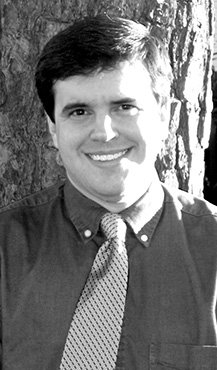Stories of scandals involving athletes have filled newspapers for decades. Colorful personalities off the field are almost routine for the top names in different sports. But there are some players who simply come to play the game, give it everything they have and quietly return to their lives.
Famed baseball player “Arky” Vaughan, an Arkansas native who was among the best in baseball when he played in the 1930s and 1940s, was attracted to the game and not the fame. Though he played decades ago, Vaughan is still considered one of the best shortstops in baseball history.
Joseph Floyd Vaughan was born in March 1912, near the tiny community of Clifty in Madison County in rural Northwest Arkansas. He did not spend much time in Arkansas, however. When he was still quite small, his father got a job as an oil field worker for Standard Oil in Fullerton, California, and, the family packed up and quickly moved.
Because of his Arkansas roots and the thick Arkansas drawls of his parents and siblings that he picked up himself, his California friends gave him the nickname “Arky.” Like so many things in his life, he simply took it in stride. He proved to be a gifted athlete, playing both football and baseball in high school.
Several universities tried to entice him with football scholarships. After he graduated from Fullerton High School in 1930, Vaughan signed a contract with the Pittsburgh Pirates, who then sent him to play for their Kansas minor league baseball team, the Wichita Aviators.
In spring 1932, he started in his first game for the Pirates, playing shortstop, his position for most of his career. He exploded onto the scene with an impressive .318 batting average. His on-base percentage was the highest in the league for three consecutive seasons. His best year was in 1935. That year, he was on base for nearly half the times he went to bat, with a .491 average, striking out only 18 times.
His .384 batting average that year not only made him the best hitter in the league for 1935, but it made him one of the best batters in the history of the major leagues. In the meantime, he quietly married and bought a ranch in California. He was named to the National League All-Star Team in nine out of his 14 seasons in the major leagues. In the 1941 All-Star Game, he became the first player to hit two home runs in the game, though the National League lost. In spite of his impressive record, the Pirates traded him to the Brooklyn Dodgers.
His teammates respected his professional attitude. He treated baseball like a job, worked hard and hardly ever complained. His daughter once explained his quiet nature years later, stating, “He didn’t like showboats at all.” However, there was one notorious incident where he did complain. While playing for the Dodgers, he often bristled against manager Leo Durocher’s rantings against the team.
Reportedly, after one game in 1943, Durocher and a pitcher had a heated argument in the locker room over another player’s error. Vaughan was so offended by Durocher that he threatened to quit if he refused to back down. The team backed Vaughan and refused to play until team owners intervened. Vaughan made no public comments at the time and quietly left the team at the end of the season.
He only returned to the Dodgers in 1947, when Durocher was suspended by the league after a series of his personal scandals erupted in the press. Vaughan batted an impressive .347 in 64 games in 1947. The 1948 season would be his last in the major leagues.
His performance dropped, ending the season with only a .244 average. He chose to spend the 1949 season in the minor league with the San Francisco Seals. He retired from baseball for good at the age of 37, and returned to his California ranch. For his entire career, he had a .318 career average, with 2,103 hits in more than 6,600 times at bat and batted in 926 runs, easily one of the most impressive careers for a shortstop. True to his nature, the next few years were relatively quiet.
In August 1952, he and a friend were boating on a small lake near his home when a storm smashed into the area. Overwhelmed by the wind and waves, the boat capsized. Vaughan tried to save his friend when both men drowned. Vaughan was 40 years old and left behind four children.
He was inducted into the Arkansas Sports Hall of Fame in 1980. Though he showed excellence on the field and had a spotless career off the field, the Major League Hall of Fame largely ignored him for years after his retirement and subsequent death. The Hall of Fame finally included him in 1985.
Dr. Ken Bridges is a professor of history and geography at South Arkansas Community College in El Dorado and a resident historian for the South Arkansas Historical Preservation Society. Bridges can be reached by e-mail at [email protected].
